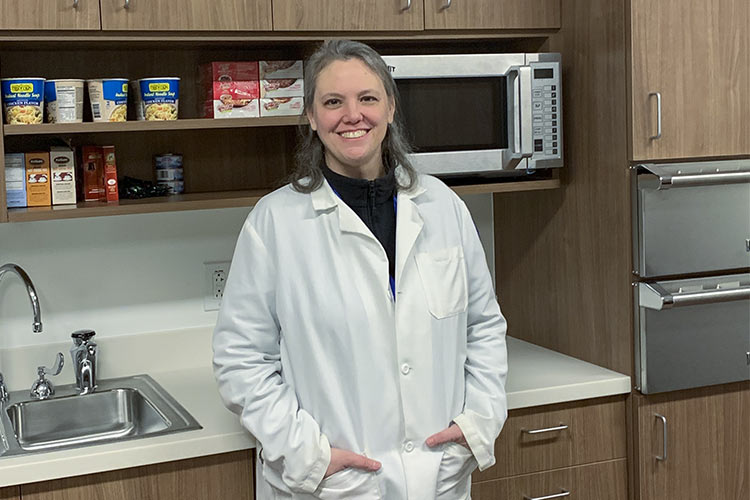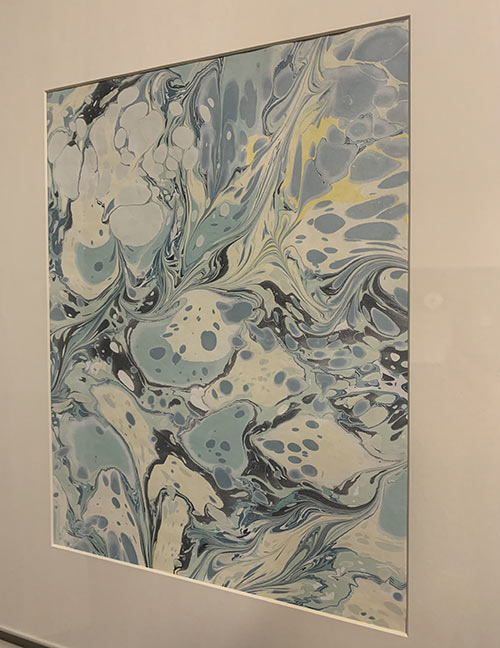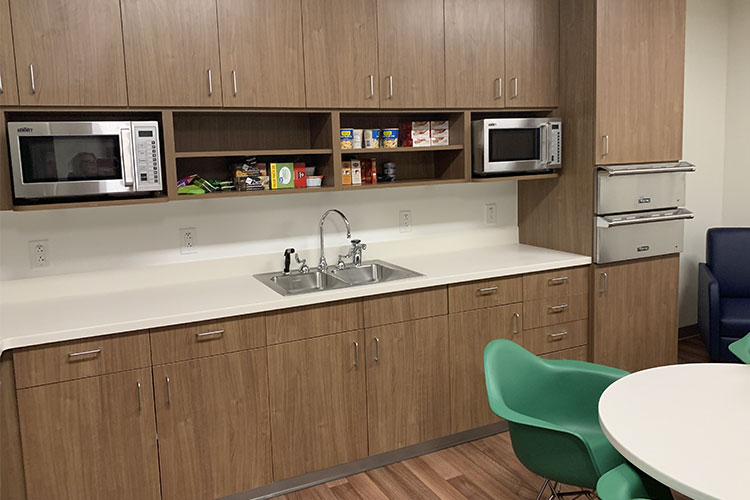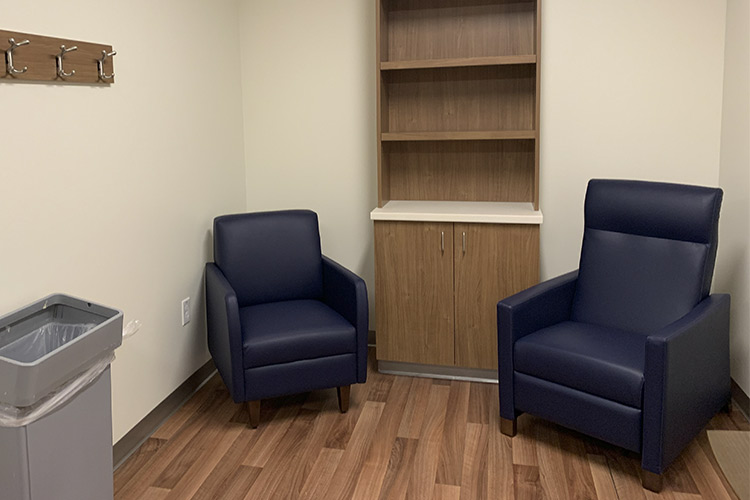MetroHealth opens Bikur Cholim room for Jewish families at its Cleveland Heights hospital
It’s never easy when a loved one is hospitalized—often, the family caregivers forget to care for themselves. With more than 2,000 Orthodox Jewish families living in the Cleveland area—the majority of whom live in Cleveland Heights, University Heights, and the Green Road area of Beachwood—the tenets of their faith can make a hospital stay particularly hard.
During Shabbat—a period of rest from sundown Friday to sundown Saturday in the Orthodox Jewish religion—people must refrain from any sort of labor, including use of any electronics or driving. Following a kosher diet in the religion—on any day—means preparing and eating foods in concordance with certain rules, while refraining from other foods.
 Dr. Rebecca Lowenthal, family medicine physician with MetroLast month, MetroHealth System opened a 414-square-foot Bikur Cholim room at the MetroHealth Cleveland Heights Medical Center with the help of Bikur Cholim Cleveland. Located at 10 Severance Circle, the newly opened room caters to the needs of the Orthodox families visiting patients.
Dr. Rebecca Lowenthal, family medicine physician with MetroLast month, MetroHealth System opened a 414-square-foot Bikur Cholim room at the MetroHealth Cleveland Heights Medical Center with the help of Bikur Cholim Cleveland. Located at 10 Severance Circle, the newly opened room caters to the needs of the Orthodox families visiting patients.
The literal translation of Bikur Cholim means “visiting the sick,” but the local Bikur Cholim organization simply refers to its work providing services such as housing, transportation, kosher meals, and childcare as “medical support services.”
It’s a welcome development for the Jewish families that frequent MetroHealth. “We supply food for the patients, but the hospital doesn’t supply food for family members who want to spend time with them, and they can’t eat a lot of the food here,” explains Rebecca Lowenthal, a MetroHealth family medicine physician. “On the Sabbath, they can’t drive to get food. We want to make sure people are as comfortable as possible when things are happening.”
The room is stocked with kosher meals, coffee, hot chocolate, and snacks that cater to all kosher needs, according to Lowenthal. The room has two microwaves, two warming drawers to heat food during the Sabbath (when use of electronics is prohibited), a refrigerator, and a sink with an instant hot water tap. Outside food is prohibited inside the room.
The Bikur Cholim room soon will also be stocked with magazines and prayer books. “Some people are here for long periods of time, so they can come here and relax,” Lowenthal explains. “There is a second room where people can pray if they want to, but it’s something separate if people need time to themselves.”
While the room is technically open to anyone, Lowenthal says the signs for the room—and the code for the manual keypad lock—are in Hebrew. “Theoretically, it’s for people who need this food,” she says. “But anyone who can read the sign can come in.”
The kitchen is furnished with a table and chairs, as well as lounge chairs and is decorated with prints by Cleveland artist Carly Utegg. The privacy room also features lounge chairs and built-in shelving for the prayer books and magazines.
Lowenthal says MetroHealth paid for the appliances, the furniture, and the cabinets, while Bikur Cholim Cleveland takes care of the rest. “The Jewish community supplies all of the food,” she says. “Every week, they stock up [the room] and have extra-special meals just for Shabbat that they bring in, so people who are here on Shabbat have food.”
 Art on the Bikur Cholim room walls at Metro’s Cleveland Hts campus by artist Carly Utegg
Art on the Bikur Cholim room walls at Metro’s Cleveland Hts campus by artist Carly Utegg
While many of the major hospitals in the Cleveland area have Bikur Cholim rooms or cabinets, Lowenthal says the room at Metro’s Cleveland Heights facility was particularly crucial because the vast majority of Cleveland’s Orthodox Jewish population live within the eruv—a theoretical boundary in which the faithful can carry items or children, or push strollers or wheelchairs—meaning they can get to the hospital, even on the Sabbath.
Metro built its Severance Emergency Department in 2016 ago, then built the 12-bed hospital that opened last year. The campus is housed on the former HealthSpan Medical Building.
Lowenthal says the Bikur Cholim room fits nicely with MetroHealth’s patient care philosophy. “We’re all here to help the patients,” she says. “We’re not here for publicity, we’re not here for the money. We’re here for the patient. I think everybody feels that way, and it makes for a really nice place to work.”




